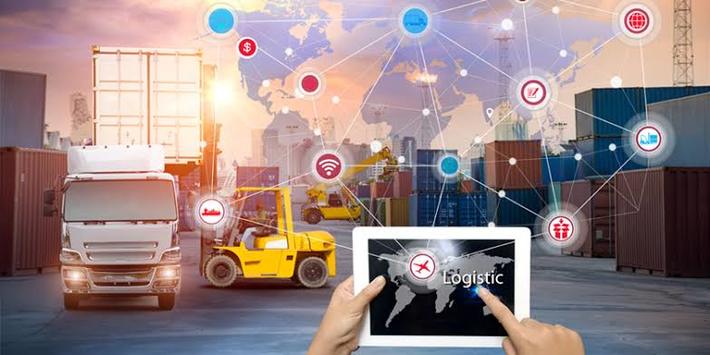Being the world’s largest industry, with Amazon, Alibaba, and eBay leading the charge, does e-commerce need further transformation? Let’s find out as we explore the transformative influence of the Internet of Things (IoT) in the online retail sector.
5 Impacts of IoT on Online Retail
Of the many ways IoT is transforming e-commerce, below are five key areas:
1. Connecting the Digital and Physical Worlds
The core of IoT revolves around the interconnection of everyday objects through the internet. These objects gather and communicate data to support real-time decision-making and are frequently incorporated with sensors and software. This connectedness in e-commerce goes beyond smartphones and laptops, bridging the gap between the virtual and real worlds.
One of the most obvious examples of this synergy is the development of smart products, such wearable fitness trackers that sync with e-commerce apps and smart refrigerators that can automatically restock goods.
IoT-powered smart shelves can automatically monitor product levels and trigger restocking orders when inventory is low, ensuring that products are always available to customers. This seamless integration of online and offline shopping experiences provides a level of convenience previously thought unattainable.
2. Enhanced Customer Personalization
The personalization area is likely where IoT’s impact on e-commerce is most noticeable. Retailers now have access to a surprising quantity of data, allowing them to understand the activity and preferences of virtually every customer completely.
Online shops can provide incredibly individualised product recommendations by analysing real-time data from IoT devices like smart home assistants and wearable technology. As a result, your shopping experience will seem custom-made for you.
Imagine receiving a notification on your smartphone just before your current pair of running shoes begins to wear out, recommending a new pair that precisely meets your fitness objectives. Such a high level of personalisation increases brand loyalty and client happiness while also increasing sales.
3. Inventory Management and Supply Chain Optimization
Operations in the supply chain and inventory management have evolved thanks to IoT sensors. Retailers can now track the movement of goods from the manufacturer to the end consumer with unparalleled precision.
A pharmaceutical business, for instance, can keep an eye on the temperature of vaccines as they’re being transported to ensure they stay within the acceptable range.
This degree of transparency lowers waste, minimises stockouts, and improves the supply chain’s general effectiveness, eventually resulting in cost savings and better customer experience.
Also Read: How IoT-driven Inventory Systems Can Enhance WooCommerce Quote Requests
4. Predictive Maintenance
Predictive Maintenance is pivotal to e-commerce due to the potentially high costs associated with downtime in warehouses or fulfillment centers.
IoT takes on a critical role here. It involves the deployment of sensors on machinery and equipment to gather data regarding their performance and wear and tear. Subsequently, this data is analyzed to predict when maintenance is needed before a breakdown occurs.
For example, if an e-commerce company uses automated conveyor systems in their warehouse, IoT sensors can detect irregularities in the system’s operations and then trigger maintenance schedules in advance.
The result is the prevention of costly disruptions and downtime, which ensures the smooth processing of orders and deliveries, all while exploring strategies to calculate and boost your e-commerce profit margin.
5. Virtual Assistants
IoT-powered virtual assistants such as Amazon’s Alexa or Google Assistant have been very effective. These digital helpers have the knack for collecting and crunching massive data, which becomes a handy tool for e-commerce businesses to make informed judgments about their overall health, including profit margins.
Imagine you are an Amazon seller, and you’ve integrated an IoT-powered virtual assistant into your business operations. It continuously collects data on your sales, expenses, inventory levels, and customer feedback.
It then uses this data to analyze your profit margin, pinpointing areas where cost-cutting or revenue-boosting strategies can be implemented. This analysis goes beyond basic financial metrics; it provides actionable insights into your business’s financial health. For instance, if your IoT-powered virtual assistant detects your profit margins have declined due to high shipping costs, it can suggest optimizing your shipping strategy.
This might involve exploring Amazon’s seller financing options, which can offer competitive rates for fulfilling orders. The IoT-powered assistant can even streamline the application process, making it a smoother and more accessible option.
Challenges and Security Concerns
As the number of devices that connect to the internet increases, so does the potential number of entry points for cyberattacks. Thus making the security of IoT devices a major concern.
Retailers, therefore, find themselves in a position where significant investments in robust cybersecurity measures are imperative.
Also, the deluge of data generated by IoT devices presents a challenge. Online retailers must leverage advanced data analytics tools to sift through this wealth of information and extract valuable insights, preventing themselves from being overwhelmed.
Bottom Line
IoT is set to revolutionize e-commerce. It’s all about merging the online and real worlds to give us amazing personalization and efficiency. But, it’s not all smooth sailing; security and data handling are tricky.
So, the e-commerce winners of tomorrow will be the ones who dive into IoT but also keep a close eye on security and data privacy. It’s a balancing act for success.



6 thoughts on “Revolutionizing E-Commerce: The Impact of IoT on Online Retail”